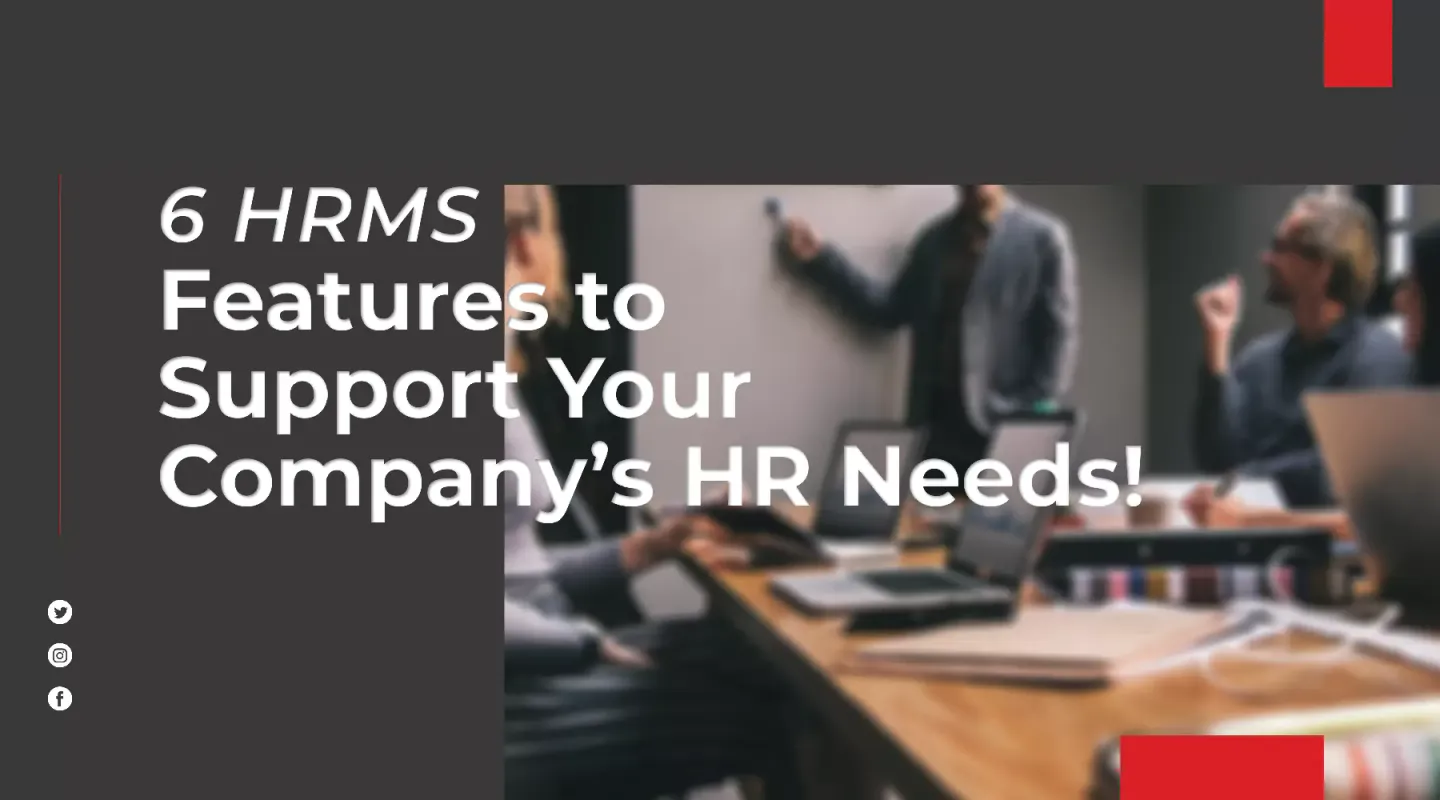
6 Human Resource Management System Features (HRMS) to Support Your Company’s HR Needs
One of the top ways employers use in a bid to ensure fairness for the employee and their business is using a human resource management system (HRMS).
In this article, we’ll explain what an HRMS is, how it works, the differences between HRIS, HRMS, and ERP.
We’ll answer the most frequently-asked questions (FAQs) about human resource management systems, and provide you with the most-sought-out HRMS features.
What is a human resources management system?
A human resources management system (HRMS) is software companies use to view employee attendance to calculate their payroll.
While this is the reason companies use human resources management systems the most, it’s not the only use for the tool.
Companies also use an HRMS to support their HR functions and needs, including recruitment and training functions.
There are different levels or degrees of advancement in an HRMS. Depending on which HRMS software your company is using, your HR team may be able to get data reporting via an HRMS.
What is the difference between HRIS and HRMS?
While HRMS stands for human resources management system, HRIS stands for human resources information system.
Companies use an HRMS to log their employees’ attendance, absences,…etc. for payroll purposes.
Meanwhile, the HRIS is used to record and manage employee records. With technological advancement, the HRIS evolved to become the HRMS.
It’s because of that, that some HR specialists use the two terms interchangeably.
What is the difference between HRMS and ERP?
A frequently asked question about human resource management systems is how they differ from ERP systems.
ERP stands for enterprise resource planning. It’s a type of software designed to help you run your entire business. ERP systems include automation, human resources, manufacturing, supply chain, procurement, finance, and more.
Clearly, ERP is much broader than a human resource management system.
While HRMS features may include finance, it doesn’t cover other areas of business, like supply chain and procurement.
Not all businesses use an ERP system.
Is HRMS part of ERP?
Most ERP systems include human resource management system features to review employee attendance and payroll.
Companies can easily connect their HRMS or other HR tools and software to their ERP system to improve efficiency.
This, in turn, translates to better employee management, experience, and can help HR improve employee engagement.
Important HRMS features to consider
Before buying an HRMS software, you need to consider which human resource management system features are relevant to your business needs.
Here are some of the top HRMS features that benefit companies the most:
1) Absences and time-off management
Most businesses in Egypt and the Middle East use HRMS tools to help managers approve holidays, absences, and shift changes. This also includes maternity or parental leave and sick leave.
This is one of the primary features of an HRMS tool.
2) Payroll management
The second most-prized HRMS feature is payroll management.
In this instance, the HR team uses the HRMS to review employees’ attendance, absence requests, and clock-in-and-out requests…etc. to calculate their payroll.
The HRMS saves time for both direct managers and HR or payroll specialists. It also helps with sustainability and no one has to worry about printing early-leave or holiday requests.
3) Mobile compatibility
Some HRMS tools are compatible with mobile, allowing employees and managers to enter their out-of-office whereabouts using the mobile phone. This may include meeting with clients, attending business conferences, working from home,…etc.
In this case, the HRMS comes with a mobile app for iOS and Android.
4) Self-service for managers and employees
Some HRMS tools offer self-service features. For managers, a self-service feature helps them perform tasks like reviewing job applications to open positions, approving expense claims, and accessing employee information.
It may also include entering performance review information that later becomes visible to employees to see their performance and if they’re entitled to bonuses.
5) Labor compliance HRMS feature
Part of HR’s roles is to ensure labor compliance for your company. Be that in your local market or if you’re operating overseas, or hiring employees overseas.
Some human resource management systems include options that help HR teams ensure companies are compliant to labor laws and regulations.
These regulations may include limiting the number of working hours for certain employees, ensuring diversity requirements are met, among others.
6) Salary and cost estimates
Another useful feature you may want to look for in an HRMS is one that uses historical data to provide you with cost estimates for different projects. This is helpful for businesses that have part-time, project-based or temporary employees, or that handles various projects for its customers.
A cost-estimate feature can also help your HR and finance teams estimate the costs and the resources they may need for future projects.
This may support your company’s HR budget planning activities and your broader compensation and benefits strategy, too.
However, this type of HRMS feature is only available in advanced, possibly expensive human resource management software systems.
Conclusion
As you can see, there are many benefits to using HRMS software. Your business needs will dictate which software you may consider buying or subscribing to.
However, not all companies are able to have an in-house HR team to review and use the data from the HRMS.
HR is tasked with paying your employees, estimating your company’s HR budget, designing a pay structure, creating an HR strategy along with HR policies, among other HR needs.
If you need help with one or more HR services, get in touch with Tawzef’s team.